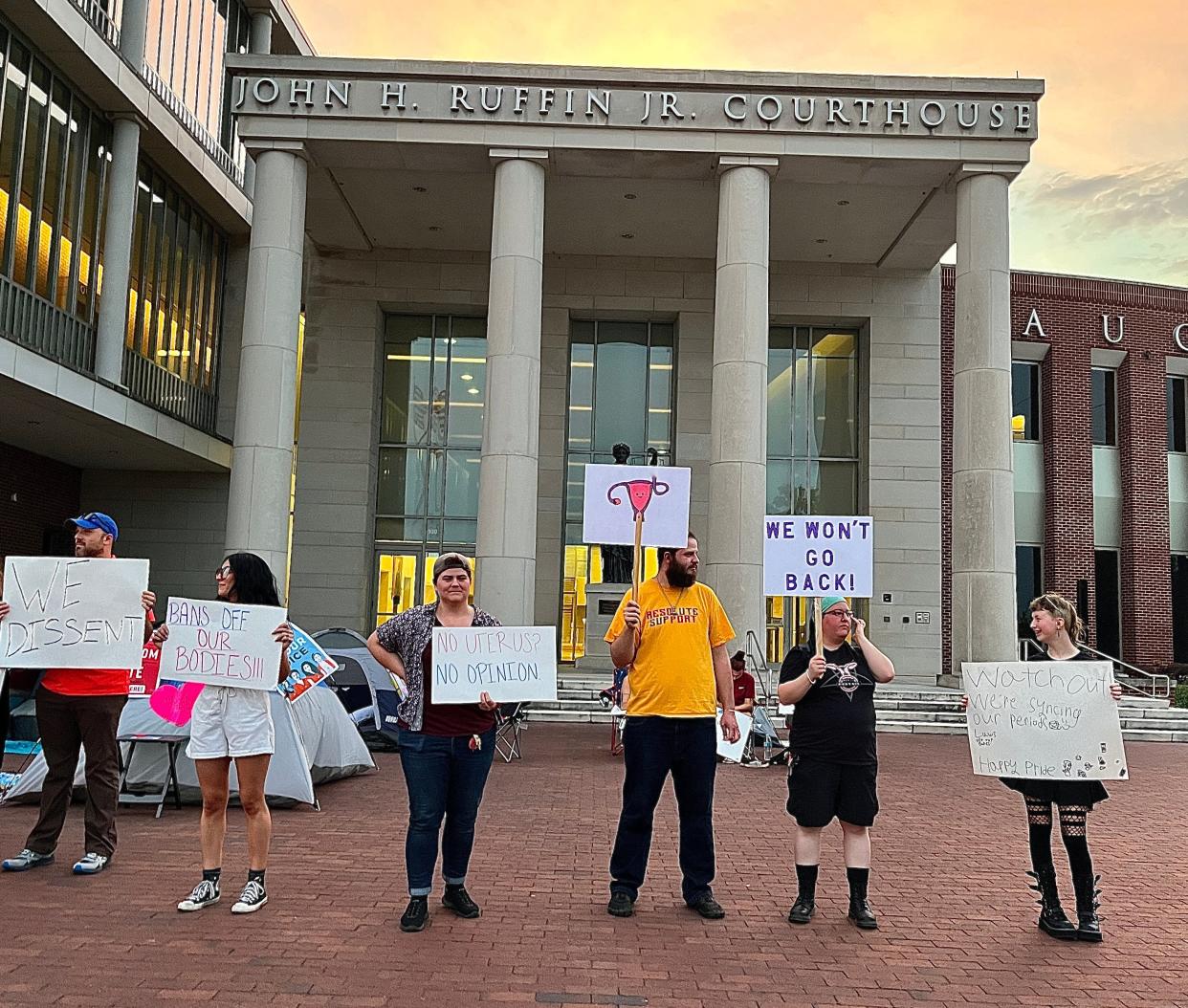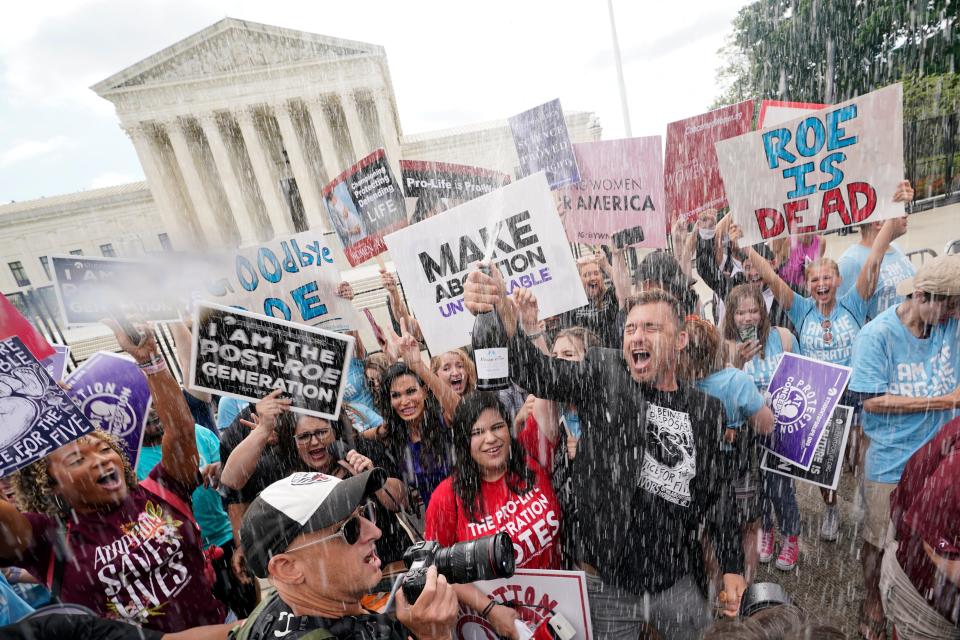Political science professor: What happens now that Roe v. Wade has been overturned?

Hank Edmondson is a Professor of Political Science & Public Administration at Georgia College.
The Dobbs v. Jackson Women’s Health Organization decision, released on Friday, June 24 does not mean there is no right to abortion. It means there is no constitutional right to abortion.
Those who wish can still argue that there is a moral or political right to abortion. Indeed, many states are, in essence, creating a statutory right to abortion, that is, enacting it into state law.
The road to Roe and Dobbs
You could say that it all started with Griswold v. Connecticut in 1964, in which William O. Douglas used astronomical imagery to argue that there is a kind of shadow cast by other provisions in the Bill of Rights that, coupled with the Ninth Amendment, produce a discrete “right to privacy.” In this case, it had to do with an old and mostly unenforced law restricting the sale of contraceptives.
Roe v. Wade in 1973 was written by the late Justice Harry Blackmun, who had formerly been in-house counsel at the Mayo Clinic. Among other things, Blackmun’s respect for the medical profession motivated him to try and protect a woman’s autonomy as well as the sanctity of her relationship with her physician.

But at that point, Blackmun was already moving away from the questionable jurisprudence of Roe v. Wade and suggested a better anchor for abortion might be found in the “Due Process Clause” of the 14th Amendment - rather than a right to privacy.
In Casey v. Planned Parenthood of Pennsylvania (1992), the Court came close to overturning Roe, if Justices Sandra Day O’Connor, Anthony Kennedy and David Souter had not shifted their support late in the process.
Casey did three notable things: it allowed more restrictions on abortion, it reaffirmed Roe and it emphasized the Fourteenth Amendment as its justification, rather than a right to privacy. The upshot of all of this was to signal that Roe v. Wade was not as strong a precedent as had been thought, and it certainly wasn’t some kind of a “super-precedent” as some have argued. To be sure, Blackmun, in his comments in Casey, acknowledged that Roe was now on shaky ground.
More about the Supreme Court: Ruling overturning Roe v. Wade sparks debate about Supreme Court's legitimacy amid partisan passions
From a political point of view, it seems that over the last several decades the Democratic Party has overplayed its hand by dominating Supreme Court judicial nomination hearings with a demand that prospective justices affirm that Roe v. Wade was untouchable.
In recent weeks the House passed prospective legislation that would liberalize the right to abortion beyond even Roe v. Wade. Few other countries have gone to such lengths. For Democrats, abortion has become a kind of religious tenet and the party has shown no restraint in its zealous promotion.
So where are we now?
At least temporarily, like it or not, former President Trump’s ratings have jumped up since he was able to successfully nominate no less than three Justices in four short years. Dobbs will also take much of the steam of the hearings dealing with the awful Jan. 6 invasion of the Capitol. This makes Trump a two-time winner in the short run.
The regulation of abortion is back up to the states as was the case prior to the 1973 decision. It’s already evident where many of the states are going. It is unlikely that the Dobbs decision will be weakened or overturned in the future.
The reasoning is not perfect, but it’s strong. The dissenting opinion in Dobbs, written by the three progressive justices, expresses deep concern for the consequences of the decision for women, but it does little to strengthen the constitutional argument for a right to abortion.
What progressives get wrong about overturning Roe: Now, it's citizens who will decide.
President Biden is calling on Congress to “codify” a right to abortion; that is, pass a law that, for practical purposes, would take the matter away from the Supreme Court. In that case, abortion would become a kind of legislative right.
Can they do that? It’s kind of complicated, but it probably won’t work, at least not for long. As soon as someone challenges it, the Court will find the new law unconstitutional- unless there are major changes in the Court.

If Congress were really serious about it, they should start the process for a new amendment, but that is admittedly hard, requiring “supermajorities” both in Congress and in the states. You need a tremendous amount of public support for a constitutional amendment, and Democrats and Republicans would have to work together.
Will Congress try to increase the membership of the Court? They certainly can, and they have done so in the past, but it doesn’t look like many in Congress are willing given the Court’s membership has stood at nine for over 150 years now. The countries that try to manipulate their judicial branch are not the ones the U.S. should be imitating.
More from Hank Edmondson: Jimcy McGirt and the Tomahawk Chop
Those who consider themselves “winners” in this matter would do well to moderate their celebrations, and, to quote from Abraham Lincoln’s second inaugural address, show “charity for all.” They would also be well-advised to do all their conscience will allow to mitigate the suffering of women who will be adversely affected by stricter abortion regulations, recognizing that these situations are sometimes gut-wrenching.

In Roe v. Wade, Justice Blackmun said that since physicians, philosophers and theologians couldn’t agree on when human life begins, neither could the Supreme Court and so the opinion side-steps that important question. That doesn’t seem to have worked too well, so now, in different arenas, perhaps that issue should be taken up again.
This article originally appeared on Augusta Chronicle: With the Dobbs v. Jackson decision overturning Roe v. Wade, what next?

